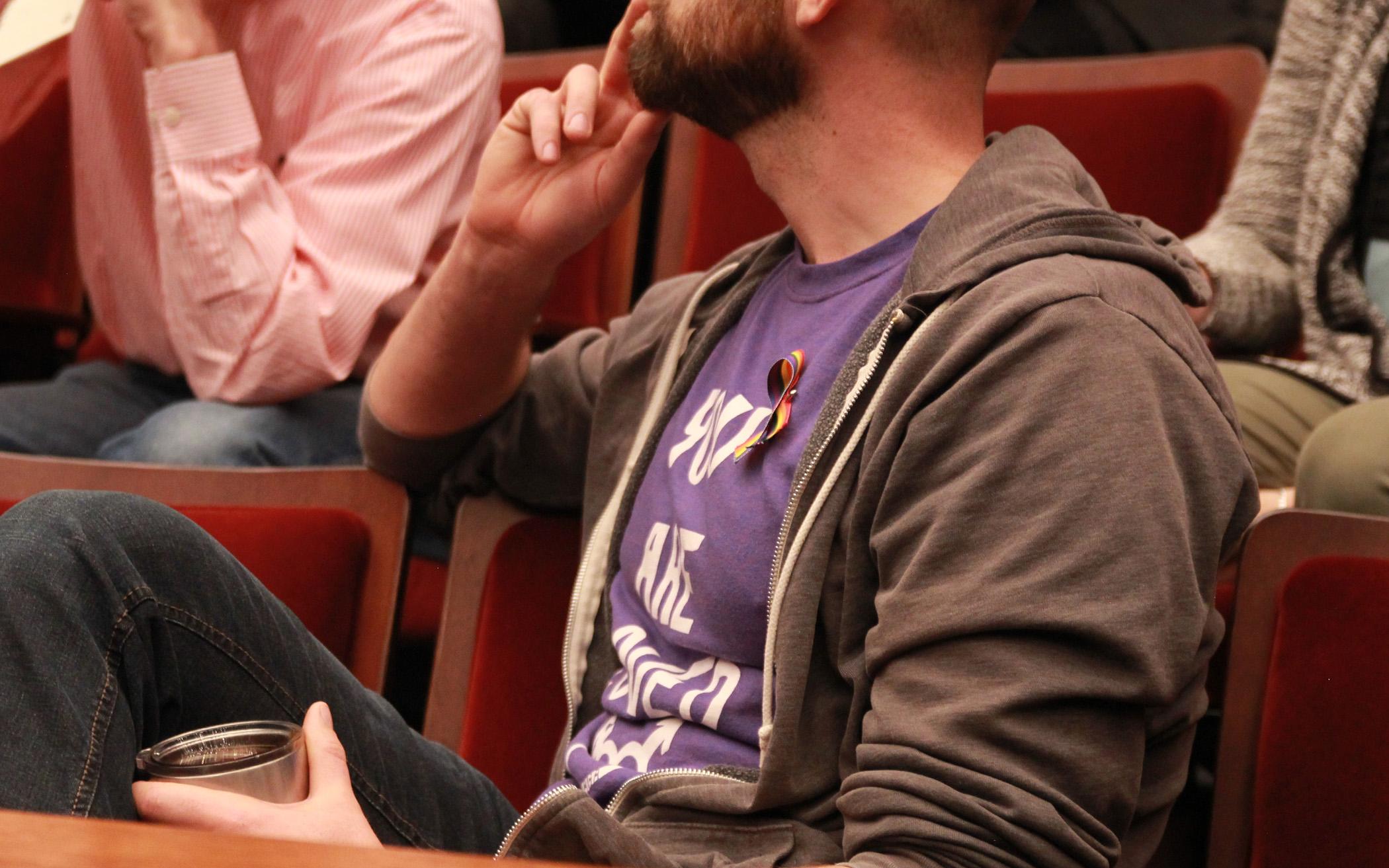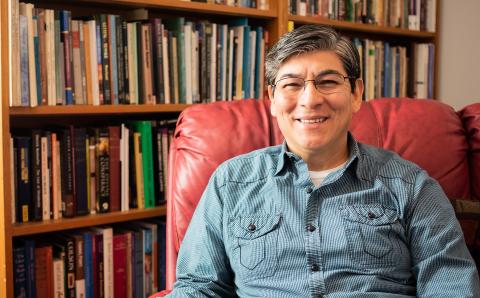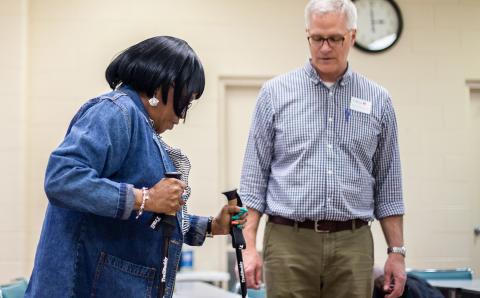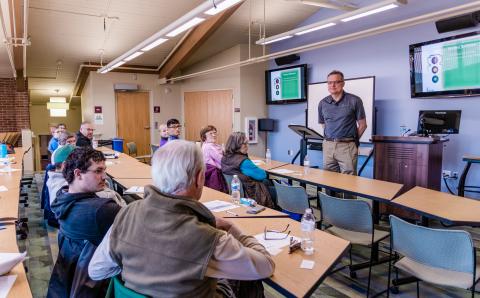Times have changed in the Christian Reformed Church, and that was very much on display at Synod 2019, the annual leadership meeting of the CRC.
From training up future leaders, to abuse awareness, to second Sunday services, the denomination has changed dramatically in the past couple of generations.
And it is prepared for more change, turning the current ministry share system on its head, taking new steps in abuse prevention.
Synod 2019 wasn’t willing, however, to mess with some traditions, such as the operations of synod itself.
And over all of this hangs the angst, the fear of what may be ahead when the full report on human sexuality comes to Synod 2021.
A New Way for Ministry Support
The biggest break from the past made by Synod 2019 was the upending of the ministry shares system that has been in place for more than 150 years. For generations, members of CRC congregations have contributed to the support of shared denominational ministries based on what was requested after the administration created the mission budget.
Starting in 2021, congregations will instead be asked to pledge, with their classis (region), the amount they will send to support the shared ministries, and the budget will be based on that.
No More Denial
Twenty-five years ago, the CRC first established its Safe Church Ministry (then called the office of Abuse Prevention). At the time, there were many who believed abuse didn’t happen in our churches. That denial has all but disappeared. Synod 2019 took bold steps to recognize and prevent the abuse of power that still happens too often.
Acknowledgement of that abuse became visible during a service of lament. Those present were welcomed to bear witness to stories of abuse they themselves carry or stories they know of by taking and placing stones in a pile. About two-thirds of those there came forward and placed a stone.
Not all change was dramatic. After a lot of discussion, delegates agreed to change the Church Order (the rules that govern the denomination), dropping the requirement to hold a second service each Sunday. Some delegates resisted it, but the number of churches holding a traditional second service has dwindled down to a few. In the words of one delegate, “that train has left the station.”
Changing Face of Leadership
Synod 2019 adopted changes to the Church Order regarding commissioned pastors. It also adopted changes making it easier for churches to call pastors from outside the denomination to enter ministry in the CRC, as well as seminarians not trained at Calvin Theological Seminary, the CRC’s theological school.
As Clay Libolt explains, these changes and others are happening so slowly and incrementally, they might not even be noticed for a while, but the face of leadership in the CRC is definitely changing. And more change is ahead as the CRC studies a growing trend of pastors in bivocational ministry.
Speaking of incremental change, deacons are finding their stride at synod. This was only the fourth year of having deacon delegates. and some deacons told The Banner’s Alissa Vernon that they were enjoying it and learning a lot about the bigger denominational picture. One of them (Melissa Van Dyk) was the first-ever deacon to serve as an officer of synod. It can be difficult for classes (regions) to find deacons willing and available to be delegated. Nine delegations this year (out of 48) were missing a deacon. But Nathan Vos, a deacon from northern Alberta, said “if you’re asked and have those gifts, you should take that seriously.”
There were fewer church planters than deacons at Synod 2019. One of their concerns is the declining denominational membership and a desire to see more church planters raised up as leaders. But not too many church planters come to synod because, as one of them told The Banner’s Roxanne Van Farowe, “church planting is rogue by (its) nature.”
Don’t Change Too Much!
Delegates to Synod 2019 decided not to mess too much with how synod itself functions, accepting some but not nearly all the changes recommended by the committee that studied it. Delegates agreed that on-site mentors and guides, better orientation for everyone, and a parliamentarian would be good, especially to avoid the tangle of synodical procedures that can sometimes bog down and even derail discussions. They weren’t so sure about limiting the length of speeches to three minutes, even though the length of speeches is the No. 1 complaint following each synod. Eventually, they agreed to that.
But no way were they going to cede any control over who they could send to synod. Delegates were quite firm on not requiring delegations to have a female or a person of an ethnic minority included, though it is encouraged. Requiring a classis to send a woman would, as Lora Copley said, damage the very thing that we have called for, that we would serve one another and honor and respect our differences. And they didn’t want to elect officers at the end of the synod who would preside over the following year’s synod, which would require the classis of those officers to delegate them.
Trying to Get it Right
Synods past and present prefer to get things done decently and in good order. When in doubt, ask for a study!
This year, synod asked the Council of Delegates to look at historical decisions of synod for the rationale behind “decisions dealing with political and/or justice matters” and how they were ruled to be properly before synod as “ecclesiastical matters.”
Delegates wasted no time in declaring Kinism a heresy, “a grievous deviation from sound doctrine.” But they want a firmer definition of heresy, so the Council will assign someone to study the meaning and application of the word “heresy” in church pronouncements.
And Synod 2019 wants to get it right when two people want to be married in the eyes of the church but can’t necessarily get married in the eyes of the state. So that is also being studied.
Trouble Ahead?
Even as delegates in 2019 strived to work together, to pray together, to honor each other’s differences, there is an undercurrent of anxiety as Synod 2021 approaches. That is the synod that will receive the final report of Committee to Articulate a Foundation-laying Biblical Theology of Human Sexuality.
Synod 2019 received the interim report, which gives a pretty good idea of the direction the committee is headed. Already, groups advocating for the full participation of LGBTQ members are publishing blogs and articles putting forth their views. And when Council of Delegate chair Paul De Vries gave a group of LGBTQ advocates their chance to give feedback, commenters on The Banner website and elsewhere decried the move as synod activism. There was no debate about the interim report, just discussion among delegates to give feedback to the committee as it continues its work. And the committee is seeking feedback from anyone interested in giving it. ( humansexualitycommittee@crcna.org)
Many denominations have discussed homosexuality and many have divided over the issue. But now it is getting closer to home. The Reformed Church in America is the CRC’s closest ecumenical relative. That denomination is exploring whether to stay together, reorganize, or divide. Its ecumenical officer told The Banner that delegates at the recent RCA synod were leaning toward that third option.
In reflecting on Synod 2019, synod president William Koopmans noted the struggle in the RCA. “I fear that conversation lies in our future as well,” he said.
As the CRC goes through changes over time, and as it faces uncertainty in the future, it is still held by God. As Koopmans told delegates in the closing worship service: “God is holding you with a grip that will never let go. Pour your heart out to him, live in that grip.”
About the Author
Gayla Postma retired as news editor for The Banner in 2020.









